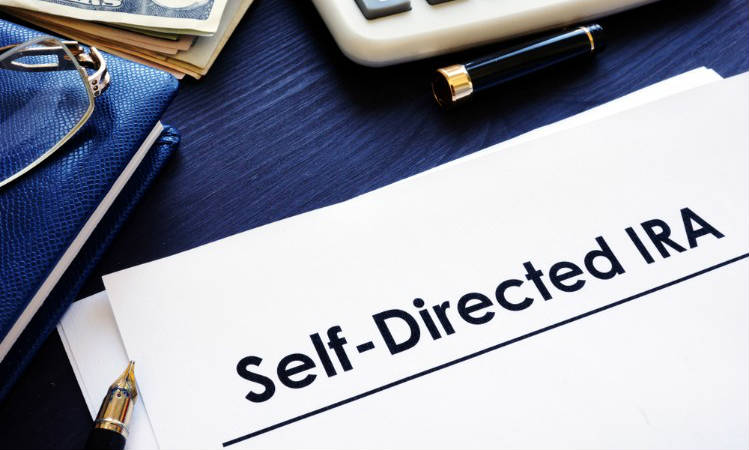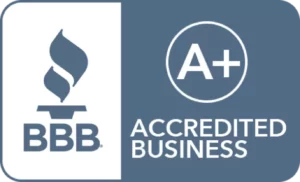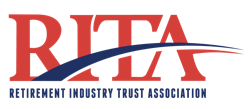The Self-Directed IRA FAQs are designed to help you better understand the structure, such as transactions you can/cannot make, differences between other retirement plans, and why you may not have heard of the Self-Directed retirement plan.
What is a Self-Directed IRA?
A Self-Directed IRA is an individual retirement account that allows investors to use their retirement funds to make alternative asset investments. You can continue to make traditional asset investments, like stock, but you can also invest in real estate, cryptocurrencies, tax liens, precious metals and more.
The Self-Directed IRA (custodian control) and Self-Directed IRA LLC (checkbook control) are IRS approved structures. Although IRAs have always been able to purchase alternative investments, financial institutions do not offer alternative investments to be purchased. However, by using a Passive Custodian, such as IRA Financial Trust, you can engage in alternative investments. However, a Passive Custodian, unlike a Custodian at a financial institution, does not offer investment advice.
If you are interested in establishing a Self-Directed IRA, we have compiled Self-Directed IRA FAQs to provide a better understanding of what the retirement plan entails. If you have a question that you don’t find, please visit our more extensive list of Self-Directed IRA FAQs.
Top 13 Self-Directed IRA FAQs
1. Why hasn’t my CPA/Attorney/Financial Advisor heard of a Self Directed IRA?
It may not be that your tax or financial advisor has never heard of the Self-Directed IRA. It is more likely that they withheld the benefits of the Self-Directed IRA in order to promote and sell the products they offer, such as equities, bonds and mutual funds. It is not within the interest of the financial advisor to tell his/her clients about alternative assets and the Self-Directed IRA.
2. What investment can I make with a Self Directed IRA?
With a Self-Directed IRA, you can make any type of investment as long as the IRS has not described it as “prohibited,” which are very few. Certain investments you can make with your Self-Directed IRA include, but are not limited to the following:
- Residential or commercial real estate
- Raw land
- Foreclosure property
- Mortgages
- Mortgage pools
- Deeds
- Private loans
- Tax liens
- Private businesses
- Limited Liability Companies
- Limited Liability Partnerships
- Private placements
- Gold
- Stocks, bonds, mutual funds
- Most currencies
3. What is a Prohibited Transaction?
The prohibited transaction rules are transactions that you cannot make with a Self-Directed IRA, which includes transactions with certain people (disqualified persons) and investments you cannot purchase.
A prohibited transaction is any direct or indirect:
- Sale/exchange/leasing of any property between a plan and a disqualified person
- Lending of money or other extension of credit between a plan and a disqualified person
- Furnishing of goods, services, or facilities between a plan and a disqualified person
- Transfer to, or use by or for the benefit of, a disqualified person of the income or assets of a plan
- Act by a disqualified person who is a fiduciary whereby he deals with the income or assets of a plan in his own interests or for his own account
- Receipt of any consideration for his own personal account by any disqualified person who is a fiduciary from any party dealing with the plan in connection with a transaction involving the income or assets of the plan
The most common prohibited transactions appear to be Fiduciary transactions, which involves the IRA owner (the fiduciary). The IRA owner is a disqualified person and cannot use his/her retirement funds to directly or indirectly benefit himself.
4. What is a Disqualified Person?
Among the Self-Directed IRA FAQs we receive often is in regards to disqualified persons. First and foremost, disqualified persons exist because the Internal Revenue Code (IRC) deems certain transactions with certain individuals inherently suspicious, and as a result, not allowed.
The term “Disqualified Person” includes virtually anyone who has a direct or indirect relationship to the plan outside of being a participant or beneficiary. The primary categories of Disqualified Persons are:
- The IRA participant (holder)
- The IRA participant’s spouse
- The IRA’s participant’s ancestors and lineal descendants (mother/father/daughter/son)
- Spouses of the IRA participant’s lineal descendants (son/daughter’s spouse)
- Fiduciaries of the plan (custodian or trustee)
- Investment managers and advisors
- Any corporation, partnership, trust, or estate in which the IRA holder has a 50% or greater interest
However, siblings, aunts, uncles, cousins, and friends are not considered disqualified persons.
5. What Transactions are Treated as Disqualified?
Under IRC section 408, life insurance is seen as a disqualified transaction. Additionally, you cannot use your Self-Directed IRA to purchase collectibles. If you purchase collectibles, this will be seen as a distribution from the IRA equal to the cost to the IRA or the amount of the collectible. Collectibles are as defined below:
- Any work of art
- Any metal or gem
- Any alcoholic beverage
- Any rug or antique
- Any stamp
- Most coins
- Baseball cards
6. Do I need to ask permission to make an investment with my Self-Directed IRA?
If you establish a Self-Directed IRA with custodian control, you will need custodian consent prior to making an investment. However, if you establish a Self-Directed IRA LLC with checkbook control, you do not need the consent of a custodian and you can make investments whenever you wish. When you see a lucrative investment, you simply need to write a check, use a debit card or wire the funds from the Self-Directed IRA LLC bank account.
Learn more about the checkbook control structure.
7. What is the difference between a Traditional IRA and Self-Directed IRA LLC with Checkbook Control?
When you establish a traditional IRA, generally you are only able to use your IRA funds to invest in equities, mutual funds, bonds and other investments provided by the custodian of a financial institution or bank. If you go to a traditional IRA custodian that claims to offer Self-Directed IRAs, you can direct your IRA, but you are limited to the products they provide, which does not include alternative investments.
A Self-Directed IRA LLC with checkbook control allows you to invest in traditional assets, such as equities, stocks and other traditional investments. However, you can also invest in real estate, cryptocurrency, tax liens, precious metals, foreign currency and other alternative asset investments. You can do this without custodian consent.
If you establish a Self-Directed IRA without checkbook control (custodian control), you can still invest in traditional and alternative assets, but you will need custodian consent.
8. What is the difference between Custodian controlled Self Directed IRA vs. Self Directed IRA LLC with Checkbook control?
A custodian controlled self-directed IRA offers an IRA investor more investment options than a financial institution self-directed IRA. With a custodian controlled self-directed IRA, a special IRA custodian will serve as the custodian of the IRA. Unlike a typical financial institution, most IRA custodians generate fees simply by opening and maintaining IRA accounts and do not offer any financial investment products or platforms. With a custodian controlled self-directed IRA, the IRA funds are generally held with the IRA custodian and at the IRA holder’s sole direction, the IRA custodian will then invest the IRA funds into traditional as well as alternative asset investments, such as real estate.
The self-directed IRA LLC with “checkbook control” has quickly become the most popular vehicle for investors looking to make alternative assets investments, such as rental real estate that require a high frequency of transactions. Under the checkbook IRA format, a limited liability company (“LLC”) is created which is funded and owned by the IRA and managed by the IRA holder. The “checkbook control” self-directed IRA allows one to eliminate certain costs and delays often associated with using a full -service IRA custodian. The Checkbook IRA LLC structure allows the investor to act quickly when the right investment opportunity presents itself cost effectively and without delay.
9. Why use a LLC for Self Directed IRA investments?
A Limited Liability Company (LLC) is a company that has option to be taxed as a partnership, this is beneficial because the LLC won’t pay any taxes on gains, and instead it will be the owner of the LLC who is liable for any taxes just as if they earned the money themselves. Because the owner of the LLC is your IRA (the IRA owner is the manager), there are no taxes unless you are running a business that is unrelated to the purpose of an IRA (making investments), using debt financing or taking a distribution from your IRA. In addition, the LLC offers limited liability and asset protection with respect to the assets of the IRA.
10. Can I use my Self Directed IRA LLC to make loans?
As long as the borrower is not a disqualified person, you make the loan. For example, if you wish to make a loan to a sibling, friend real estate developer or business you or another disqualified person does not own, it is permitted. However, if you wish to make a loan to a parent, spouse or child, that would be a prohibited transaction.
11. Can I use my IRA assets to guarantee a loan or personally guarantee an IRA loan?
No. A “prohibited transaction” is a transaction that, directly or indirectly involves loan of money or other extension of credit between a plan and a disqualified person. Normally, when an individual purchases real estate with a mortgage, the traditional loan provides for recourse against the borrower (i.e., personal liability for the mortgage). However, if the IRA purchases real estate and secures a mortgage for the purchase, the loan must be non-recourse; otherwise there will be a prohibited transaction.
12. Can I have multiple IRA Accounts in my Self Directed IRA LLC?
Yes – you may have multiple IRA accounts in your Self Directed IRA LLC. Each account would be a member of the LLC and have an interest in the LLC based on the amount contributed. Profits and losses would be allocated to the IRA accounts based on the accounts percentage interest.
Can I have a Traditional IRA and Roth IRA account in one Self Directed IRA LLC?
Yes – you may have a Traditional IRA and Roth IRA account as members of your Self Directed IRA LLC.
Note: you should keep separate records for each account as the distribution and tax rules are somewhat different.
13. Can my spouse and I use one Self Directed IRA LLC entity to make IRA investments?
Yes. You and your spouse’s IRA can co-invest in one Self Directed IRA LLC entity. Each spouse’s IRA would own a percentage of the LLC based on the amount contributed. In some cases, it may make sense for each spouse to use a separate Self-Directed IRA LLC entity to make their investments. Instances such as investment disputes and/or divorce could end up complicating matters.
14. What are the benefits of a Self-Directed IRA?
A Self-Directed IRA allows individuals to invest in what they know. No longer are you limited to traditional investments. Instead, you can use your retirement to invest in real-estate, crypto, precious metals and more! Best of all, you can also make traditional IRA investments with a Self-Directed IRA.
Get in Touch
If you have any questions about the Self-Directed IRA, you can review our Self-Directed IRA FAQs page linked above, or please contact IRA Financial Trust directly at 800-472-0646 or contact us through our contact forms.











